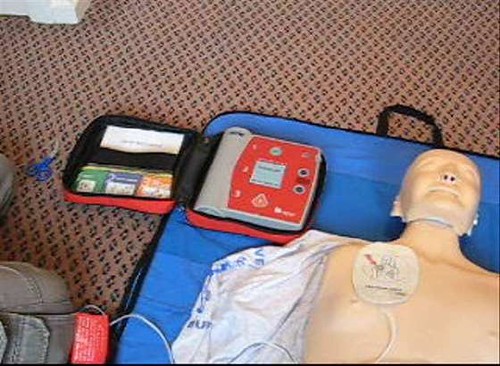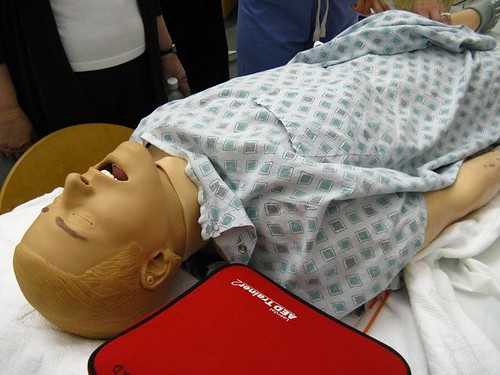Working the healthcare field can be daunting. There are so many changes that take place in such a rapid manner that keeping up with them can be a full-time job in itself. There are a few programs that are mandated on healthcare workers which are important to know. These are life saving procedures that could come in handy to save a life. These programs are Basic Life Support (BLS), Advanced Cardiac Life Support (ACLS), and Pediatric Advanced Life Support (PALS).
BLS is the basic level of life support care any healthcare provider must know. As its name suggests, it is the most basic form of life saving procedures. BLS concentrates on three basic components: Circulation (making sure blood flows through the body without flowing out of the body), Airway (making sure there is no airway obstruction), and Breathing (making sure someone is able to breathe through their lungs on their own). If any of the three are causing issues (e.g., sever bleeding, someone stops breathing, choking, etc.), someone trained in Basic Life Support has received the knowledge to know what to do in a given situation.
ACLS is a little more demanding than BLS as it requires someone to have knowledge of managing a patient’s airway, starting an IV, and reading electrocardiograms. The training for this type of certification is rigorous and is usually reserved for licensed physicians, pharmacists, nurses, and paramedics. The purpose of ACLS is to be able to treat sudden cardiac arrest until a patient is transported to a hospital. Keeping a patient alive until the blockage can be moved or the blood start flowing again is an important part of ACLS.
PALS gets even more demanding as it requires someone to not only know BLS and ACLS, but to be able to recognize the signs of cardiopulmonary arrest in infants and children. PALS trains healthcare professionals to recognize the signs of seriously ill children and infants and manage their emergency treatment during the time they are transported to a hospital. Those with PALS training include pediatricians who are able to recognize serious matters when someone comes to their office for something “minor.” PALS helps them assess such situations and provides them with the training to keep the patient stable.
So where does someone go about obtaining these certifications? The requirements for each is set out by the American Heart Association and there are usually BLS classes in your local area, but most are in larger metropolitan areas. If you are looking to get your certification quicker without having to travel to another city, you can always seek out online opportunities. National Health Care Provider Solutions (NHCPS) is one of the largest and most reputable companies providing such services and offering training and certification in PALS, ACLS, and BLS. They also offer re-certification for those already trained.
Why does this matter? Well, you may not need to know any of these to save someone else’s life in the future, but it would be nice that someone else knows it to save yours. As healthcare providers are required to obtain these certifications, you should feel safe knowing that you will have a trained professional looking after you if a situation should arise in the presence of a healthcare worker.



